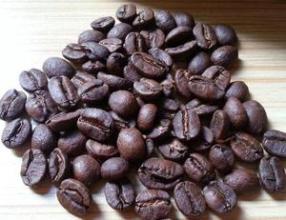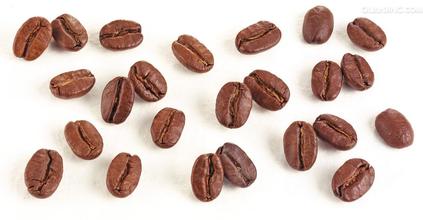Flavor description of Sidamo Lion King Coffee beans Grinding scale varieties taste manor production area treatment method
Description of Flavor of Sidamo Lion King Coffee Bean introduction to the method of regional treatment of varieties of taste manor
Ethiopia's coffee grading and quality control system has two main indicators: visual inspection and cup evaluation, including the color, cleanliness, origin, taste and characteristics of coffee beans. The export rating is marked by simple numbers, with the best washed coffee at level 5 and the best sun-cured coffee at level 4. After grading, mark the place of origin and then export. Exports are usually paid by letter of credit, which can not only reduce the risk of foreign exchange collection for exporters, but also give quality assurance to importers. Coffee is Ethiopia's most important export cash crop and the main source of Ethiopia's foreign exchange earnings. Ethiopia's coffee exports account for about 3% of the world market, making it the eighth largest coffee exporter in the world. Coffee exports increased steadily from 58000 tons in 1990 to 110000 tons in 1995-1996 and remained at this level in the following years. The export volume exceeded 110000 tons from 2001 to 2002 and reached 127000 tons from 2002 to 2003. As the price of coffee on the international market has been declining for a decade, Ethiopia's foreign exchange earnings have been seriously affected. Before the sharp drop in coffee prices, coffee exports accounted for more than half of Ethiopia's foreign exchange earnings, but now they account for only about 35 per cent. But according to the International Coffee Organization, coffee prices rebounded in 2002, rising from 41 cents per pound in September 2001 to 52 cents per pound in 2002 and 59.7 cents per pound in 2003. The average price in March 2004 was 60.8 cents per pound, an increase of 50% over September 2001. This is excellent news for Ethiopia.
This batch is produced by Sirsa Shilcho Cooperative near Dilla Town. The cooperative was founded in 1976 and is currently a member of the Sidamo Farmers' Cooperative Union SCFCU (Sidamo Coffee Farmer Cooperative Union). We have screened the coffee again and again, and this batch has been selected for excellent flavor.
Although the Ethiopian Yirgacheffe coffee is petite, it is gentle and delicate and sweet. As the hometown of coffee, thousands of years of planting history and processing tradition in Ethiopia have created high-quality washed Arabica beans. Light baking has unique sweet aromas of lemon, flowers and honey, soft acidity and citrus flavors, fresh and bright on the palate. No milk or sugar, let the rich texture and unique soft scent of flowers brush your taste buds

Important Notice :
前街咖啡 FrontStreet Coffee has moved to new addredd:
FrontStreet Coffee Address: 315,Donghua East Road,GuangZhou
Tel:020 38364473
- Prev

Introduction to the Grinding scale of Fine Coffee Bean Farm in Colombia
Columbia boutique coffee bean manor features regional processing variety grinding scale introduction the first kind of name, such as tchembe (Clinique), nekiss (Honey Kiss), perci (Prospect), given names by raw bean merchants, 90 + companies like to do this, its information will describe the producing areas, bean seeds, treatment, etc., but will not say in detail, this is a trade secret. The second kind
- Next

Flavor description of Yunnan Tiepi Katim Coffee beans
Flavor description of Yunnan Tippi Katim Coffee beans Typica: the oldest native variety in Ethiopia and southeastern Sudan, all Arabica are derived from Tibica. The flavor is elegant, but the physique is weak, the disease resistance is poor, the fruit yield is less. Jamaica Blue Mountain, Sumatra Manning, Hawaii Kona, etc.
Related
- Detailed explanation of Jadeite planting Land in Panamanian Jadeite Manor introduction to the grading system of Jadeite competitive bidding, Red bid, Green bid and Rose Summer
- Story of Coffee planting in Brenka region of Costa Rica Stonehenge Manor anaerobic heavy honey treatment of flavor mouth
- What's on the barrel of Blue Mountain Coffee beans?
- Can American coffee also pull flowers? How to use hot American style to pull out a good-looking pattern?
- Can you make a cold extract with coffee beans? What is the right proportion for cold-extracted coffee formula?
- Indonesian PWN Gold Mandrine Coffee Origin Features Flavor How to Chong? Mandolin coffee is American.
- A brief introduction to the flavor characteristics of Brazilian yellow bourbon coffee beans
- What is the effect of different water quality on the flavor of cold-extracted coffee? What kind of water is best for brewing coffee?
- Why do you think of Rose Summer whenever you mention Panamanian coffee?
- Introduction to the characteristics of authentic blue mountain coffee bean producing areas? What is the CIB Coffee Authority in Jamaica?

